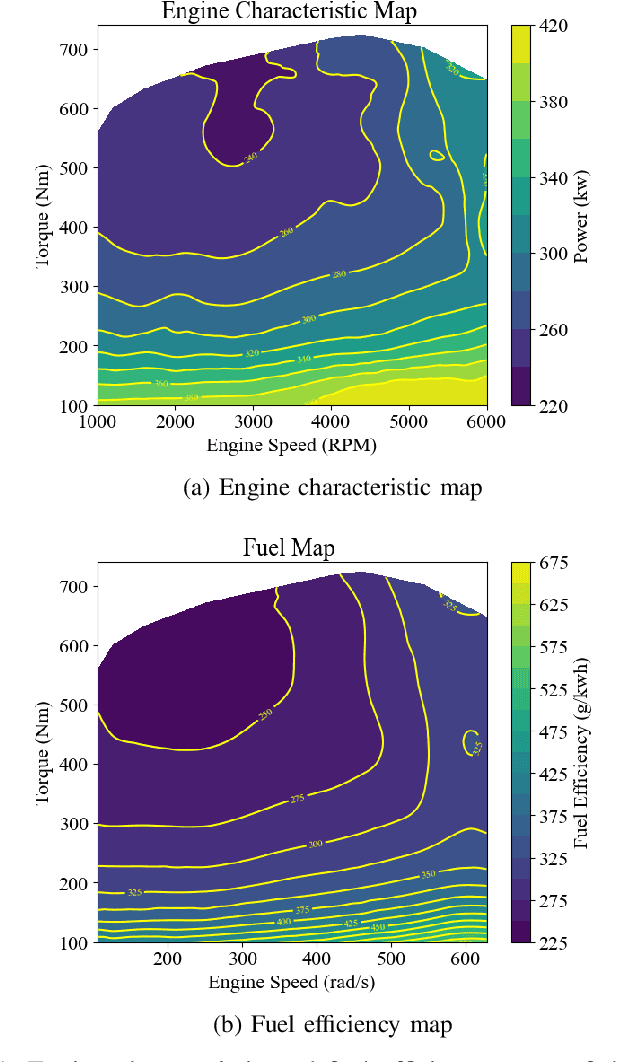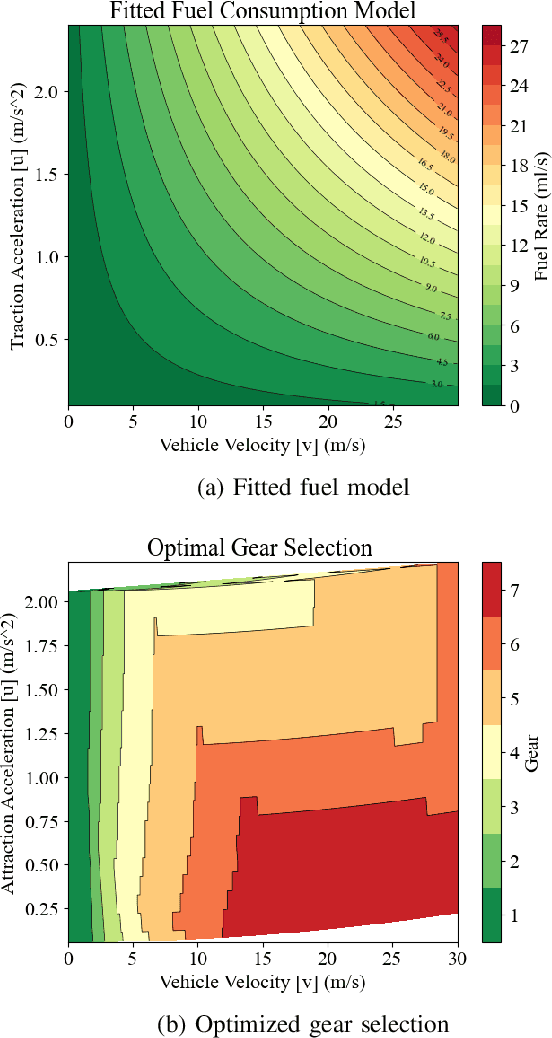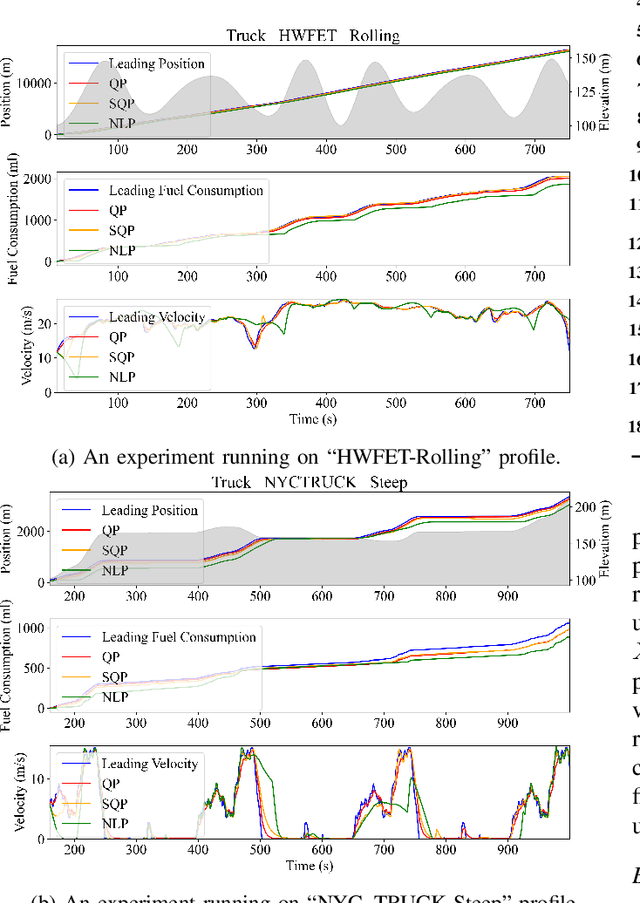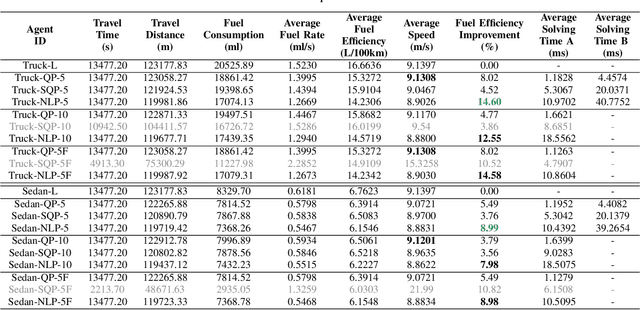Lichen Xia
EMATO: Energy-Model-Aware Trajectory Optimization for Autonomous Driving
Dec 12, 2024Abstract:Autonomous driving lacks strong proof of energy efficiency with the energy-model-agnostic trajectory planning. To achieve an energy consumption model-aware trajectory planning for autonomous driving, this study proposes an online nonlinear programming method that optimizes the polynomial trajectories generated by the Frenet polynomial method while considering both traffic trajectories and road slope prediction. This study further investigates how the energy model can be leveraged in different driving conditions to achieve higher energy efficiency. Case studies, quantitative studies, and ablation studies are conducted in a sedan and truck model to prove the effectiveness of the method.
Slope Considered Online Nonlinear Trajectory Planning with Differential Energy Model for Autonomous Driving
Dec 12, 2024



Abstract:Achieving energy-efficient trajectory planning for autonomous driving remains a challenge due to the limitations of model-agnostic approaches. This study addresses this gap by introducing an online nonlinear programming trajectory optimization framework that integrates a differentiable energy model into autonomous systems. By leveraging traffic and slope profile predictions within a safety-critical framework, the proposed method enhances fuel efficiency for both sedans and diesel trucks by 3.71\% and 7.15\%, respectively, when compared to traditional model-agnostic quadratic programming techniques. These improvements translate to a potential \$6.14 billion economic benefit for the U.S. trucking industry. This work bridges the gap between model-agnostic autonomous driving and model-aware ECO-driving, highlighting a practical pathway for integrating energy efficiency into real-time trajectory planning.
 Add to Chrome
Add to Chrome Add to Firefox
Add to Firefox Add to Edge
Add to Edge